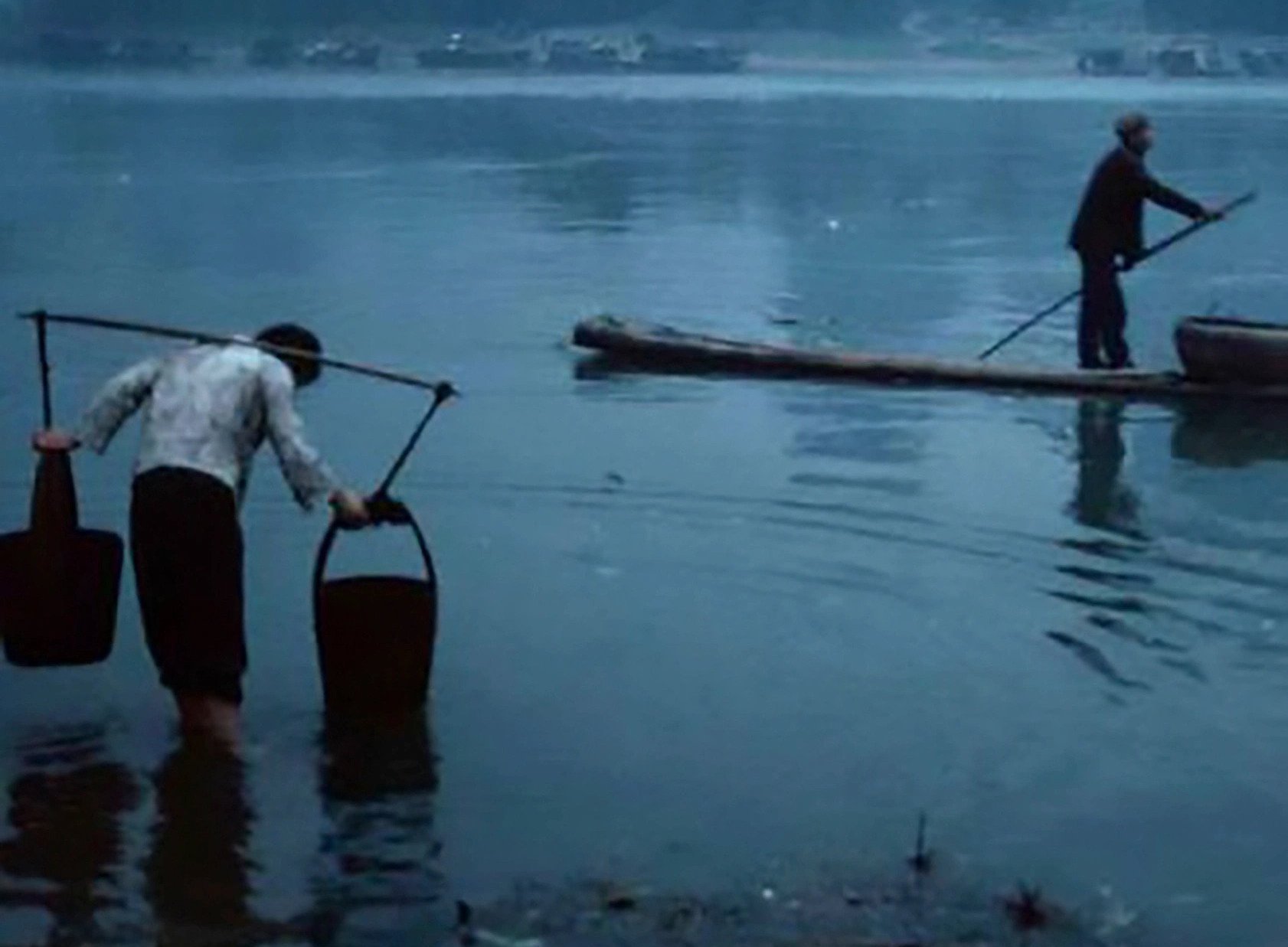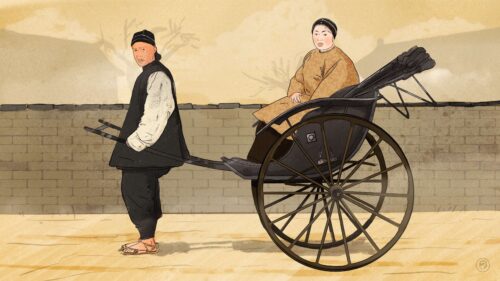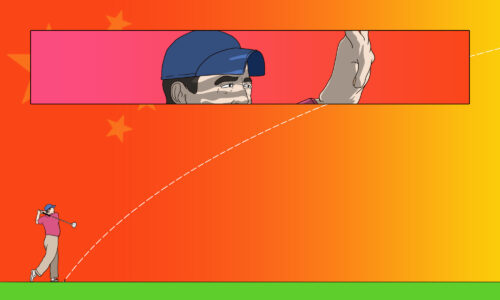This is book No. 6 in Paul French’s Ultimate China Bookshelf.

Blurbs:
“Like many Chinese intellectuals in the recent economic boom, Chen Guidi and Wu Chuntao, a husband-and-wife team of writers, mostly ignored their ancestral homes in the countryside. No one, they described themselves as thinking, wants to read about peasants in the era of skyscrapers and designer bags.”
—Florida Sun Sentinel
“In China two years ago, the original edition, An Investigation of the Chinese Peasantry, sold 250,000 copies and even got a good review in the People’s Daily. But the censors, whose fear makes them unpredictable, banned it. The authors, a husband-and-wife, have been harassed but their views have spread; apparently about ten million bootlegged copies are now in print.”
—National Post (Canada)
“Chen Guidi and Wu Chuntao’s book delves deeply into the rural conundrum that continues to bedevil China’s Communist Party leaders.”
—New York Times
“(This) brave expose pinpoints the lack of accountability perpetuating injustice and horror in rural areas.”
—The Financial Times
About the authors:
Chén Guìdì 陈桂棣 (born 1942) from Anhui and Wú Chūntáo 吴春桃 (born 1963) from Hunan were a husband-and-wife investigative reporting team. Chen was an established novelist and playwright when he met Wu in Beijing at a writers’ conference. The two married soon afterwards despite Wu’s criticism of Chen’s writing (especially his female characters). Wu was from a peasant background. The two decided to conduct a survey of China’s peasantry and their conditions, and traveled to Anhui in 2001. The resultant book, based on interviews across many provinces over several years, was banned, but became an “underground mega-bestseller,” according to the Asia Times, selling more than seven million unlicensed copies as of 2005 and appearing in an English translation in 2006. The couple received the Lettre Ulysses Award for the Art of Reportage in 2004.
The book in 150 words:
Zhongguo Nongmin Diaocha (中国农民调查 zhōngguó nóngmín diàochá, “An Investigation of Chinese Peasants”) was published as Will the Boat Sink the Water? in English (translated by Zhu Hong) in 2006. The English title comes from the author’s opening quote — “Water holds up the boat / Water may also sink the boat,” purportedly from the Emperor Taizong (600-649, Tang Dynasty). The report focuses on the cases of four poor rural Anhui villages where there was excessive extraction of taxes by local CCP cadres. As a result of this, there had been disturbances. The book provides an analytical discussion of the historical background and the institutional sources of the conflicts between the local CCP leadership and the peasantry. The book was highly controversial in China — banned — but is thought to have influenced policies under the Hu-Wen administration of the time.
Your free takeaways:
The peasants, used to being kicked around, had always trusted Ding for his learning and good sense. Now, at one of their informal get-togethers, again the villagers were impressed and gave their tacit approval of his activities as he continued to spread the word. But they still couldn’t help wondering about where this would lead, saying, “Look at all the villages around us, look at the neighboring townships. Aren’t the bosses doing the same thing? Heaven is high and the emperor beyond our reach. What can you do about it?”
Village Chief Gao did not expect to be rebuffed by an old granny. He took a step back and looked the old woman up and down as if not quite believing his eyes. Then he stepped up to the frail old lady and issued an ultimatum: “Pay up, or accept the consequences.” Trembling with anger, Granny shouted back at him, “No way!” Village Chief Gao, shocked at the force of the old woman’s defiance, raised his voice even higher. “I’ll see to it that you are charged with an antitax crime!”
Word got out quickly that Yan Xueli of Zhang Dayu Village was planning to set up an anticorruption bureau, and appoint himself bureau chief. The news reached the ears of the county and city leadership. Suixi County and Huaibei soon learned about the acute situation in Wugou Township — how resistance to taxes was spreading among the villages.
Why this book should be on your China bookshelf:
It is perhaps hard now to comprehend the impact Chen and Wu’s Will the Boat Sink the Water? had at the time of its initial publication in China. The era of Jiāng Zémín 江泽民 (see book No. 3), export-led economics, the cult of inward investment, and rampant urbanization was still dominant, but the new administration of Hú Jǐntāo 胡锦涛 and Wēn Jiābǎo 温家宝 felt it necessary to provide a correction to the overemphasis of Jiang’s team of rapid economic growth, pump primed manufacturing, and urban sprawl. This was partly the oft-perceived boringness of the Hu era, but also, with over 60 percent of China’s population still living in the countryside, a matter of pragmatic regime survival for the Party.
The new Hu-Wen administration, ushered in for its decade-long reign in 2002, openly promised to address the grievances of the 900 million peasants of China. The issues Chen and Wu raised in Will the Boat Sink the Water?, just a year or two later, of burdensome, unfair, and illegal taxation were primary concerns among peasants across the nation and well-known to the leadership. The Party was not blind to the fact that, as seen in book No. 4 on our shelf by Graham Peck, there were “two kinds of time” in China, and it was moving decidedly slowly in the countryside. Additionally, many peasants might not be thinking much had changed in half a century of communist domination. That many rural cadres were effectively out of control, lining their own pockets, and that this was leading to growing discontent and, in some cases, outright rebellions. That this was considered a most urgent question that required analysis and answers. (However, Chen and Wu shining a highly forensic spotlight on the issue was, unsurprisingly, not welcomed in Zhongnanhai.)
A question asked at the time was how much urban China — the small traditional city-dwelling community of China and the new city slickers recently moved from the countryside — wanted to hear of the countryside’s woes. They were familiar, and so many had upped and left to the new megalopolises and factory zones to escape the village. But Will the Boat Sink the Water? sold phenomenally well (until it was banned) — rumor had it Wen Jiabao kept a copy on his nightstand in Zhongnanhai. Perhaps partly because, unlike most detailed investigative reports, it read as part-travelogue, part-novel of rural life. Much of the book is centred on villages barely a couple of hundred miles from Shanghai — not unfamiliar territory to many readers. The scams and schemes of the rural cadres were all familiar — e.g., a village forced to plant mulberry bushes so that the leading cadre can become rich selling the seeds — and the frequency with which cadres called in armed police to quell revolts become most alarming to a leadership in Beijing concerned with stability.
But arguably what got the book banned was the author’s contention that trouble in the countryside was nothing new. It wasn’t that the countryside needed reform, but rather that the Party needed reform. The economic reforms had seen nothing but additional tax burdens for land, health, and education fall on the countryside. The income gains many farmers had seen after the land reforms of the 1980s, when the agricultural collective were broken up, were being reversed. The book was removed from the shelves.
When it was translated and came out overseas, it was by far the most widely read book about the Chinese countryside for several decades. It did much, among Western China observers, to refocus the discussion back on the countryside, after observers had become almost wholly obsessed with urbanization and manufacturing-led economic growth during the Jiang Zemin era. In two senses, Will the Boat Sink the Water? deserves a place on the Ultimate Shelf — first for reminding China watchers the countryside still existed, and second for bringing them up to speed on issues of excessive taxation and cadre abuses just as the urban real estate boom was leading to a ginormous land grab by the Party that dispossessed and impoverished a whole set of the peasantry once again.
Next time:
While the 1990s and early 2000s were increasingly about the transition from Jiang and his policies to Hu and his concerns, China’s cities continued to grow moving from megacities to megalopolises and busting all global population numbers. Beijing, Guangzhou, Chongqing all exploded in size with all the complications that come with rapid population growth. So too Shanghai, where perhaps the newly emerging twenty million plus city and its denizens were being best captured by one novelist who described the city meticulously through the eyes of one poet-detective.
Check out the other titles on Paul French’s Ultimate China Bookshelf.







